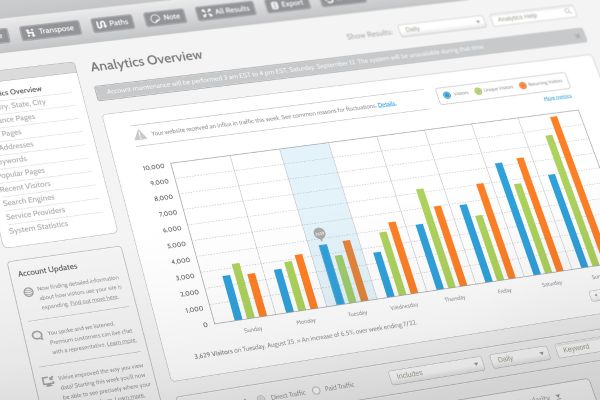Why Educational Technology Jobs Are Thriving
With the world becoming increasingly digital, education hasn’t been left behind. The demand for educational technology (EdTech) professionals has skyrocketed, as schools, universities, and corporations seek innovative solutions to make learning accessible, interactive, and effective. If you’re wondering how educational technology jobs have emerged as one of the most promising career paths, you’re in the right place.
Educational technology jobs span a variety of roles, from creating digital learning platforms to training educators on new software and analyzing data to improve student outcomes. This guide explores the diverse job roles, the skills needed to succeed, and practical advice on starting or advancing in this field. If you’re passionate about both education and technology, let’s dive in!
The Landscape of Educational Technology Jobs
1. Top Job Roles in Educational Technology
Educational technology jobs encompass roles for creative minds, tech enthusiasts, data-driven analysts, and education advocates. Here’s a breakdown of some key positions in EdTech:
- Instructional Designer: Designs digital learning materials, such as online courses and interactive modules.
- E-Learning Developer: Builds educational software and applications, often working closely with designers and content experts.
- EdTech Project Manager: Manages EdTech projects, ensuring they stay on time, within budget, and meet quality standards.
- Educational Consultant: Advises schools and institutions on technology integration and provides tailored training.
- Learning Management System (LMS) Administrator: Maintains and updates platforms where courses are hosted, troubleshooting issues and assisting users.
- Data Analyst: Collects and interprets data on student engagement and performance to help refine learning materials and tools.
Each of these jobs plays a unique role in enhancing learning experiences, and they all require a blend of technology know-how and educational insight.
2. Skills Needed for Success in Educational Technology Jobs
EdTech professionals wear many hats, so having a versatile skill set is essential. Here are some core skills for a successful career in educational technology:
- Technical Proficiency: Familiarity with e-learning software, coding languages (like HTML5, JavaScript), or LMS platforms is often essential.
- Instructional Design Expertise: Understanding how people learn and how to design content that caters to diverse learning styles is vital.
- Project Management: Keeping complex projects organized, setting timelines, and meeting deadlines are key to managing large-scale educational programs.
- Data Analysis: Data informs nearly every decision in EdTech, so knowing how to analyze metrics and translate them into actionable insights is invaluable.
- Communication Skills: Effective communication ensures that tech solutions are well-understood and embraced by teachers, students, and stakeholders.
3. How to Gain These Skills
To enter educational technology jobs, consider these pathways:
- Certification Courses: Many universities and platforms like Coursera and edX offer EdTech-specific certifications in instructional design, e-learning, and more.
- Hands-on Experience: Volunteering or freelancing as an e-learning developer or instructional designer can give you a real taste of EdTech.
- Networking in EdTech Communities: Join forums, LinkedIn groups, or local meetups. The EdTech community is active, supportive, and full of resources.
Investing time in developing these skills and gaining practical experience can position you as a strong candidate in this competitive field.
Job Opportunities in Educational Technology by Industry
Educational technology jobs are not confined to schools alone. Many industries leverage EdTech to upskill their employees, making this career path highly versatile. Below are some industries actively hiring EdTech professionals:
1. K-12 and Higher Education
Schools and universities are constantly updating their systems to offer hybrid or fully online classes. Roles such as instructional coordinators and e-learning developers are highly sought after in this sector.
2. Corporate Training
Corporations use educational technology to train employees on new software, company policies, and skills development. LMS administrators and instructional designers often find opportunities in this sector.
3. EdTech Startups
Startups in EdTech are booming, creating new tools for classrooms and remote learning environments. Startups often seek agile professionals with varied skills, such as developers, instructional designers, and data analysts.
4. Government and Nonprofits
Government and nonprofit organizations often invest in digital learning tools to support communities and schools. Educational consultants and project managers may find roles here, developing resources and conducting training.
Building a Career in Educational Technology
Wondering how to start a career in EdTech? Here are some key steps:
1. Get Relevant Education and Certifications
A degree in education, technology, or instructional design is advantageous. Many professionals further their knowledge with certifications in areas like e-learning, data analytics, or project management.
2. Build a Portfolio
Portfolios are essential, especially for instructional designers and e-learning developers. Showcase projects you’ve worked on, such as course modules or training videos, to demonstrate your expertise.
3. Stay Updated on Industry Trends
The EdTech field evolves quickly. Follow industry blogs, attend webinars, and participate in online courses to keep up with trends like AI in education or immersive learning through AR/VR.
4. Network and Attend Conferences
EdTech conferences like ISTE or BETT are excellent opportunities to connect with potential employers, share knowledge, and learn about the latest industry innovations.
FAQs on Educational Technology Jobs
- What qualifications are required for educational technology jobs?
Most EdTech roles require a bachelor’s degree, with many positions preferring candidates with specific training in educational technology, instructional design, or computer science. Certifications and hands-on experience are also valuable.
- Are educational technology jobs in demand?
Absolutely! As education institutions and corporations increasingly shift to digital learning, demand for EdTech professionals is growing rapidly.
- How much do educational technology jobs pay?
Salaries vary based on role, experience, and location. For example, instructional designers earn an average of $65,000 per year, while EdTech project managers may earn upwards of $90,000 annually.
- What skills are essential for a career in EdTech?
Key skills include instructional design, technology proficiency, data analysis, project management, and strong communication abilities.
- How can I transition into EdTech if I have a background in teaching?
Teachers can transition into EdTech by gaining technical skills, such as learning about e-learning platforms, data analysis, or instructional design. Many EdTech roles value teaching experience as it offers valuable insight into educational needs.
Conclusion: A Future-Proof Career Path in Educational Technology Jobs
Educational technology jobs offer a fulfilling career path for those passionate about shaping the future of learning. With the right blend of technical skills, instructional expertise, and a drive to innovate, you can become a valuable asset in this booming industry. By following the steps outlined here—gaining relevant education, building a strong portfolio, and staying updated—you’ll be well on your way to a rewarding EdTech career.
Authoritative Links for Further Reading:
- EdSurge – www.edsurge.com
- International Society for Technology in Education (ISTE) – www.iste.org
- Coursera – www.coursera.org
- EdTech Magazine – www.edtechmagazine.com



